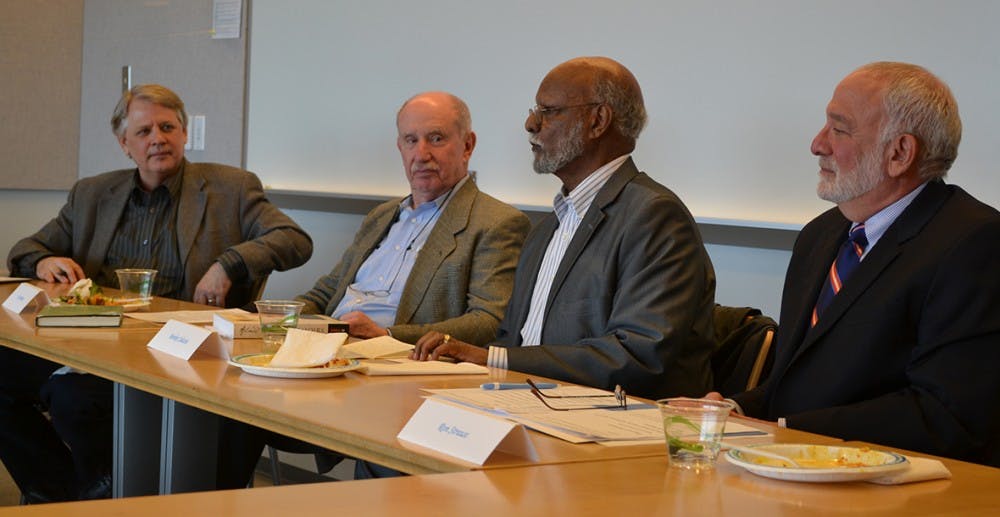The African Studies Center and UNC Global have teamed up to create a Nelson Mandela Lunch Panel Discussion Series . The first discussion took place Monday in the FedEx Global Education Center .
Mandela, who died in December, was a leader in the anti-apartheid movement in South Africa and was president of the country from 1994 to 1999 .
The discussions will continue until fall 2014. Monday’s talk focused on Mandela’s trial and image as a moral icon.
Kenneth Broun , professor of law and former Chapel Hill mayor, kicked off the talk while the audience munched on their catered lunches.
“What would South Africa and the world have been like had he in fact been executed?” he asked, and discussed how important Mandela was for the anti-apartheid movement in South Africa.
“No one person is responsible for the change over from apartheid to the constitutional democracy we now have in South Africa, but it likely would not have happened, at least as peacefully as it did, it might not have happened at all without Nelson Mandela,” he said.
Broun emphasized that it was Mandela’s great advocacy that kept him from the death penalty, but also said Mandela played an important part in preserving his own life.
“I think the critical factor was the speech of Mandela, how he comported himself before the judge,” Broun said.



